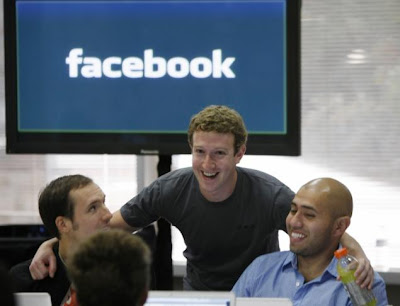NEW DELHI: Eventually, it turned out to be a stroll rather than the tough climb it was billed to be. The Congress humbled the opposition in the vote on allowing FDI in retail in the Rajya Sabha by a convincing margin of 21 votes: a scoreline which was facilitated by desertions from the opposition ranks and support from all but one of the Independents.
The victory — 123 votes for FDI to 102 against —is likely to be a spur for the government to seek the passage of more reforms legislations. "Certainly, we are going to bring in more legislation in the coming weeks in Parliament (financial bills) and we will be engaging all political parties on it," parliamentary affairs minister Kamal Nath told reporters after the Rajya Sabha vote.
SP, BSP bail out government againThe debate for FDI in retail in Rajya Sabha carried the trademark stamp of the Congress's fabled "management" skills. V Maitreyan of the AIADMK, who initiated the debate, called the 123-102 scoreline a victory of Kamal Nath, the parliamentary affairs minister, and the House, otherwise deeply divided, agreed.
The floor management saw three of the five TDP members abstaining, along with two belonging to the NDA — Shiv Sena's R K Dhoot and Jharkhand Mukti Morcha's Sanjeev Kumar. The Congress also got Upendra Kushwaha, a JD(U) rebel who risks losing his membership under the Anti-Defection Act, to vote for the government.
The Samajwadi Party and the BSP, bitter rivals in UP, were again united in bailing out the government, disregarding their anti-Congress posture. Fifteen members of the BSP, which is keen to avoid Lok Sabha polls, voted against the opposition, while those belonging to the SP, which would not wish Mayawati to be the government's principal rescuer, walked out in time to facilitate the government's task.
The Congress also bagged the support of all Independents in the House, excepting A V Swamy. Vijay Mallya, Rajeev Chandrasekhar, Mukesh Ambani's aide Parimal Nathwani, Mohammad Adeeb, Ahmad Saeed Malihabadi and SP rebel Amar Singh all went the same way.
Such was the Congress's confidence that minister of state for parliamentary affairs Rajeev Shukla sought a recount when the electronic scoreboard showed that the government had eked out a narrow victory with 123-109 margin. The slim gap suggested that the government would have lost had the BSP not voted for it. The revised tally validated Shukla's confidence. "This shows that we would have won even without BSP's vote," a triumphant Shukla said, proclaiming the result as reflecting the yearning for stability and faster economic reforms.
The presence of Mallya, who NDA assumed would stay abroad, and the preference of Chandrasekhar, whom the BJP had banked upon, was a tribute to the painstaking work the Congress put in to escape what had threatened to be a big political embarrassment. There was a strong element of intrigue about the absence of three TDP members, with political circles wondering whether senior party leader Devender Goud and leader of the party in the House Y S Chowdary, along with Sudharani Gundu, acted without a wink from party leader N Chandrababu Naidu.
Congress sources denied, although not very convincingly, efforts made by Kamal Nath to play on the pro-reforms instincts of Naidu who has diverse business interests.
Stressing that more members had criticized FDI and, therefore, the outcome could not be called an endorsement of government's policy to let in foreign retailers, Maitreyan said, "It is not commerce minister Anand Sharma but parliamentary affairs minister Kamal Nath who has won. If the government wins it is going to be the victory of management and not the policy because the majority of speakers in the House have opposed the policy."
He also said the policy would be reversed after Congress's loss in the next Lok Sabha election. Former minister Ambika Soni rubbished the assertion. "Let the nine-member party first get the numbers to form the government," she said.
Nath had on Wednesday impressed upon Mayawati that government's defeat in Rajya Sabha would set in motion a trend leading to Lok Sabha elections at a time when the BSP is still trying to recover from the drubbing in the UP assembly polls.
Although BSP's switch to the government camp had settled the issue on Thursday itself, Congress left nothing to chance with Prime Minister Manmohan Singh, according to Congress sources, himself working the phone.
NCP's Janardan Waghmare, who is bed-ridden because of a fractured bone and had been counted out, was brought in on a stretcher and voted for the government from the lobby. Another ailing member, Congress's N Janardhana Reddy, arrived on a wheel chair, helped by special arrangements put in place by Andhra Pradesh chief minister Kiran Reddy at Nath's behest.
Actrees Rekha, along with other Independent members, turned up to cast what leader of opposition Arun Jaitley had on Thursday called "thanksgiving vote".
In all, 10 members skipped the vote for various reasons. They include cricketer Sachin Tendulkar, JD(U)'s Vashista Narain Singh, BJD discard Pyari Mohan Mahapatra, Congress's ailing member Murli Deora and Lalhming Liana of Mizo National Front.
Earlier, while replying to the debate on FDI in multi-brand retail, commerce minister Sharma maintained that the move was essential for the country's growth and rejected the opposition's contention that it would hurt small retailers and farmers and harm the manufacturing sector.
Sharma accused the opposition of creating a scare over the issue and rejected Jaitley's contention that the measure would lead to India becoming a nation of sales boys and sales girls. "You have scared foreign investors who want to visit India," he said.
Source : TOI







+to+the+Indian+Army.jpg)











